
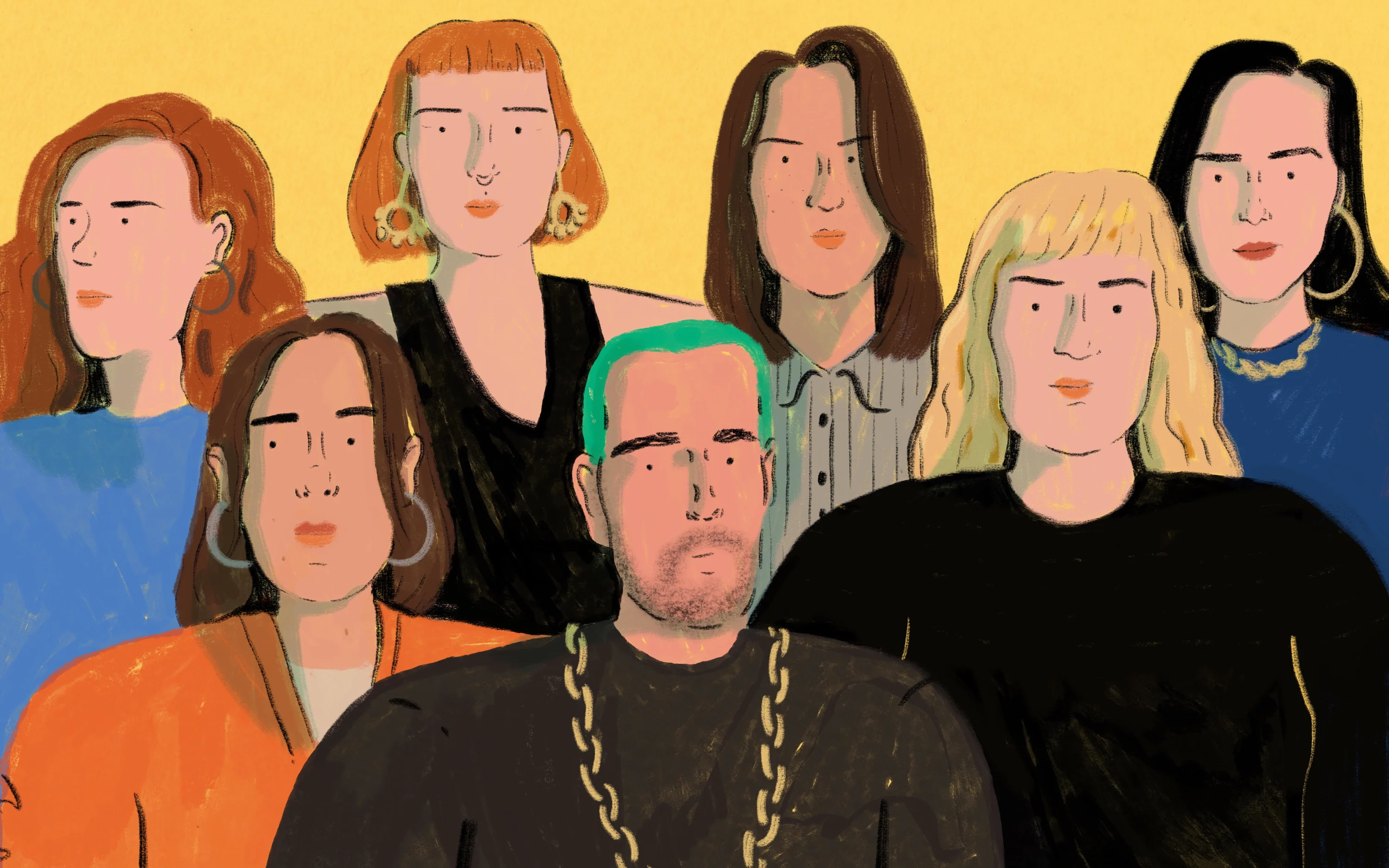
In Poland, tensions between the Law and Justice Party and the LGBTQIA+ community have reached an ugly breaking point. Rallying together, the latter has come together to form a collective called Oramics which seeks to use music, art, events and creativity to tackle the growing unrest. Writer Paul Hanford spoke to a few of the group’s members to find out how music, art, podcasts and togetherness are uniting people, empowering those in danger, and paving the way for a better future.
Illustration by Haley Tippmann.
In Poland, the presiding right-wing Law and Justice party have, along with the dominant Catholic church, been whipping up storms of homophobic and transphobic language since they got into power in 2015. On July 20th, during Pride, this erupted. Thousands of nationalist football "ultra" fans and far-right supporters threw flash bombs, rocks and glass bottles at Pride marchers in the town of Bialystok. Riot police were mobilised. Hatred made visible. And in the ensuing aftermath, entire towns were declared as LGBTQ-free zones.
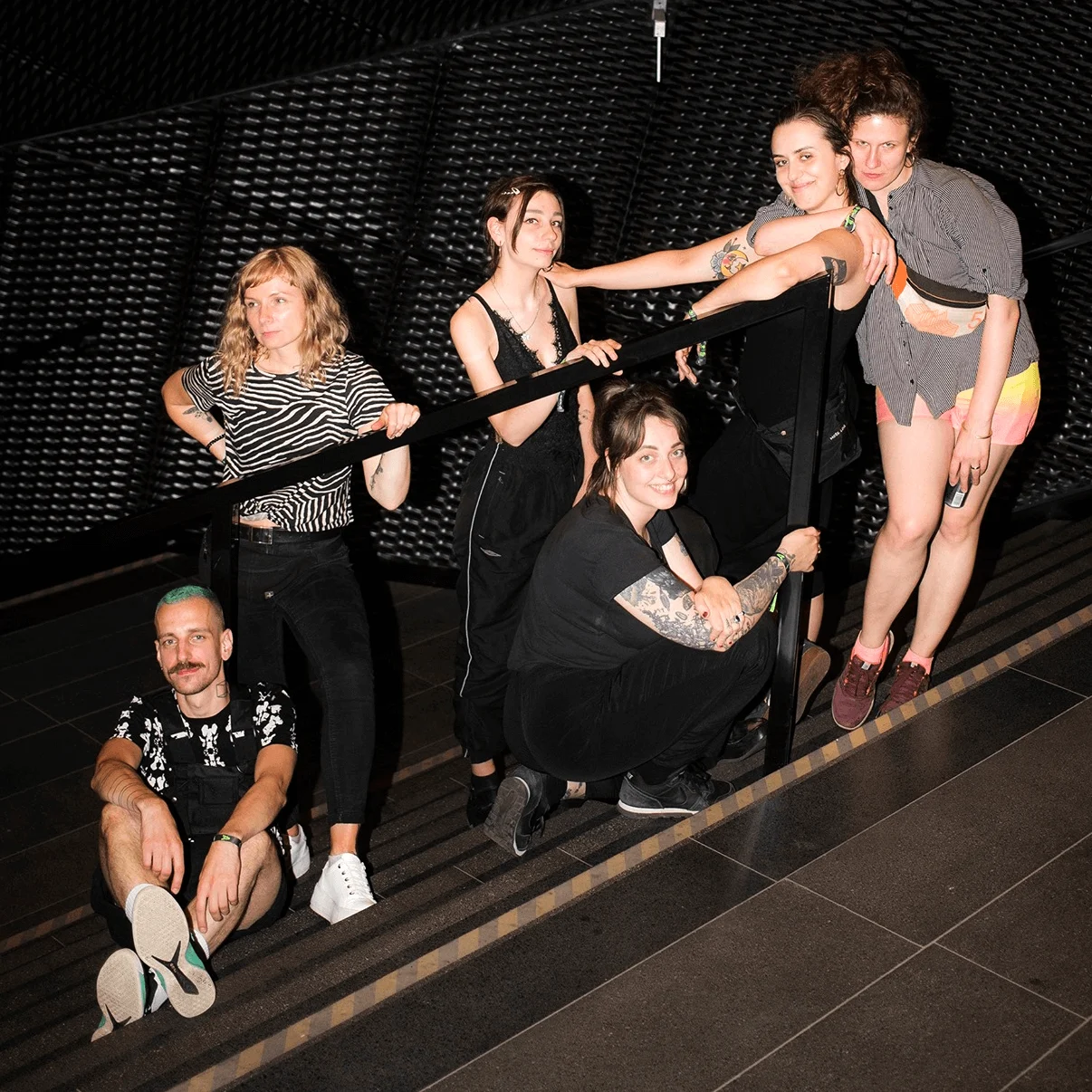
I was 750 kilometres away when I heard about these events. I live in a bubble in Berlin: here I take it for granted that same sex couples can do something as normal as holding hands in public without fear of retaliation. I was utterly ignorant to the growing persecution of people’s day to day existence happening in towns across the border to the east. I’d certainly never heard of the Law and Justice party.
“In short, Law and Justice are anything BUT law and justice,” Polish DJ, composer and producer Avtomat, aka Kajetan Łukomski explains. He has over a decade’s experience of involvement in queer and anti-fascist scenes in Warsaw. “They’ve managed to dismantle independent courts and fill them with the party’s puppets, reverse countless pieces of legislation regarding human rights and citizen freedoms, ignore climate change and tied the state closer to the Polish Catholic Church. They’ve made our country walk backwards straight into medieval mindsets.”
“We as a people aren’t protected by law anyhow, there’s not even the concept of anti-LGBT hate crime in our legislation,” Avtomat continues. “The most dangerous thing is the open and officially sanctioned consent to treat some people as a lower kind of being.”
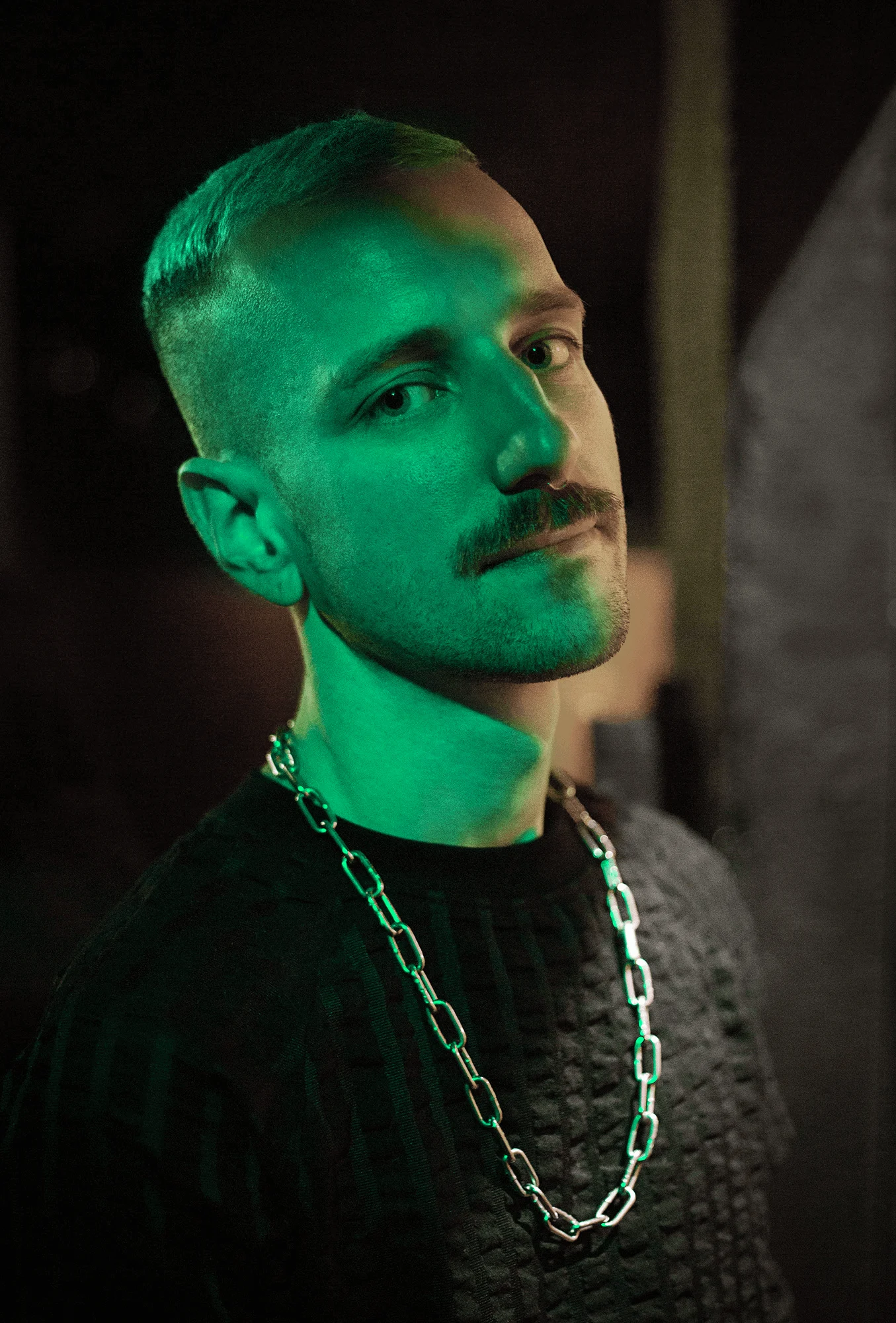
Avtomat – whose hair is an anti-reactionary, nuclear green – is a member of Oramics: a seven-strong crew of DJs, producers and activists that formed just two years ago and are now shaking up boundaries across central and eastern European club scenes. Through underground techno parties, workshops, a booking agency and podcasts, the crew’s urgency is fired out of a need for change. Founding member ISNT explains how the current situation has led the collective into action.
“People are exposed to real physical and verbal aggression. Such incidents end in assaults,” she says. “A few days ago, the Equality March took place in Lublin, where a couple brought explosives they constructed by themselves to hurt, or even kill, the people taking part in the march.” She encloses a photo of some graffiti stencilled on a street that reads: “Lud LGBTQ powinien zostać zabity.” Translation: LGBTQ people should be killed.


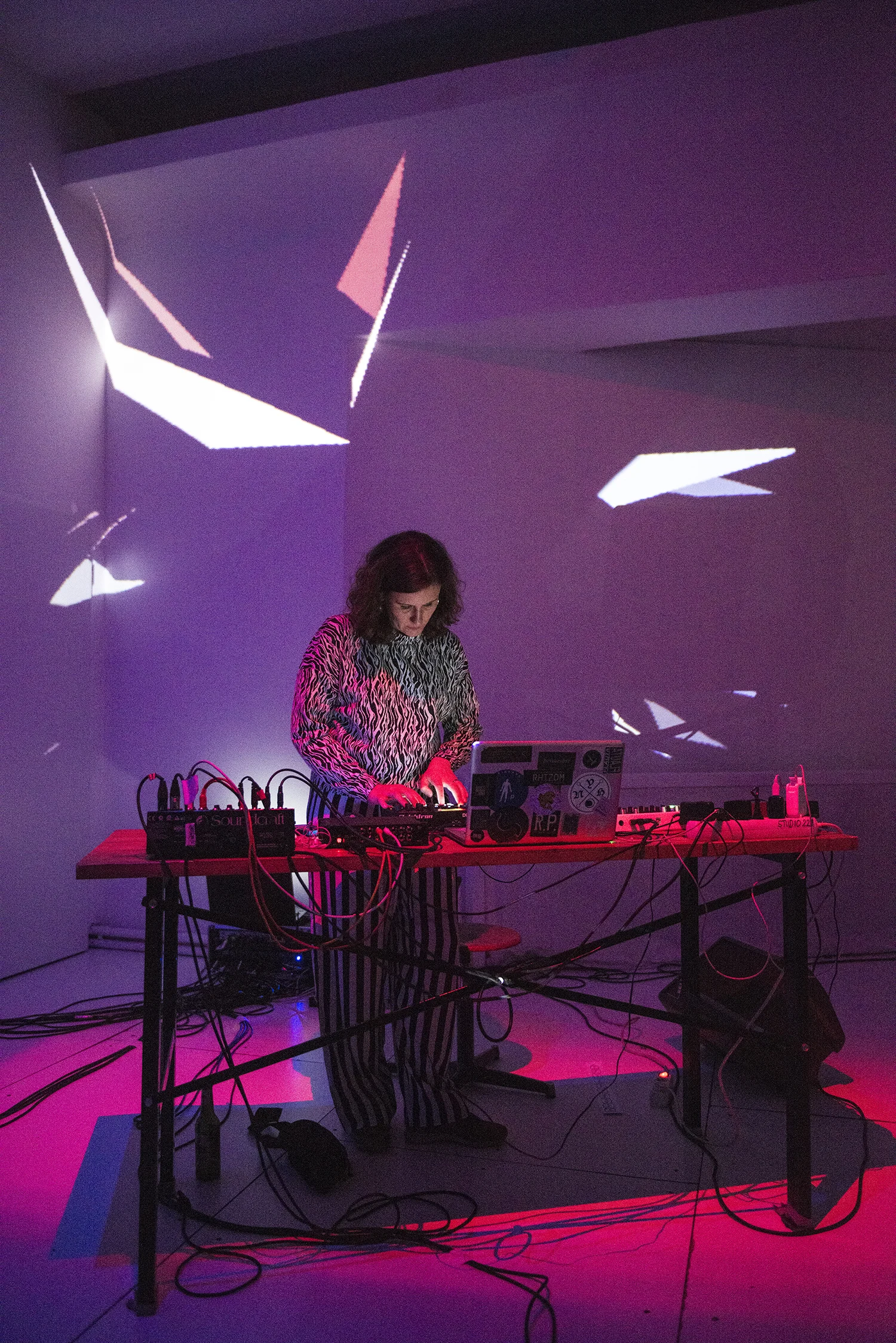

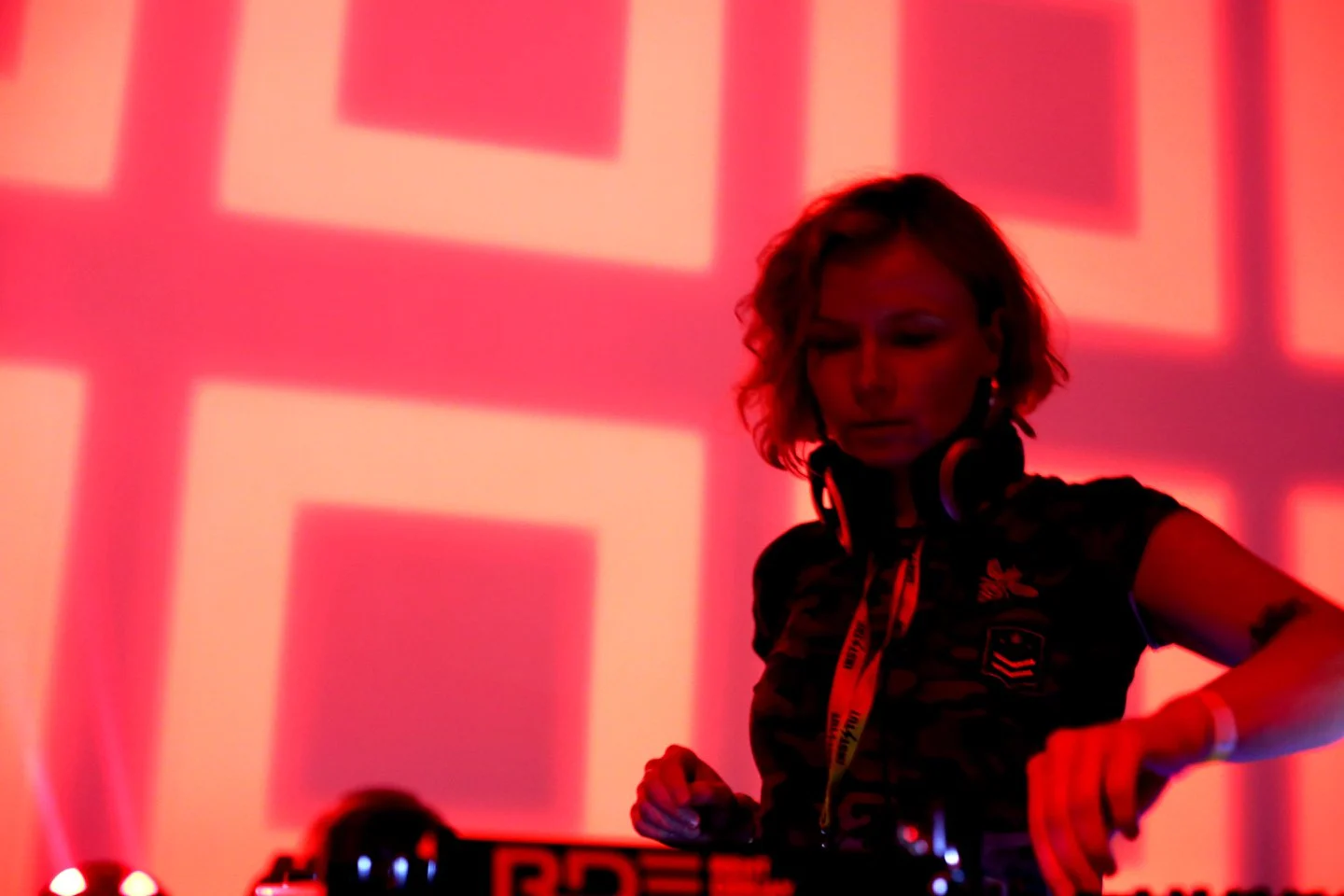
Oramics gives us the freedom to pursue whatever we feel like pursuing at the moment.
ISNT and Avtomat, along with FOQL, Monster, Mala Herba, dogheadsurigeri and Olivia make up Oramics who, like Discwoman in New York and No Shade in Berlin, are committed to redistributing opportunities and removing gender barriers for female, non-binary and queer people across club culture. Their workshops provide a safe space for people to get acquainted with music gear and knowledge that is not readily available. Their club nights promote diversity in line-ups. They’re doing this all to a soundtrack of some of the bassiest, dirtiest and raw electronic music to emerge out of Europe right now.
Before the attacks, I had become aware of the collective through the music. Specifically the podcast series, posted regularly on their website via Soundcloud. I was drawn in by the sonic freedom where acid, techno, rave, trance, experimental, noise and stuff-that-sounds-crazy-and-doesn’t-have-a-genre-yet blend together as one. There is no one defining sound that underpins what Oramics are doing, yet instead, as Avtomat says, “We’ve made it a point to become a colorful patchwork, we all dabble in different genres, sometimes overlapping, sometimes not, but we keep learning from one another and expanding our horizons. Oramics gives us a platform, but also the freedom to pursue whatever we feel like pursuing at the moment.”
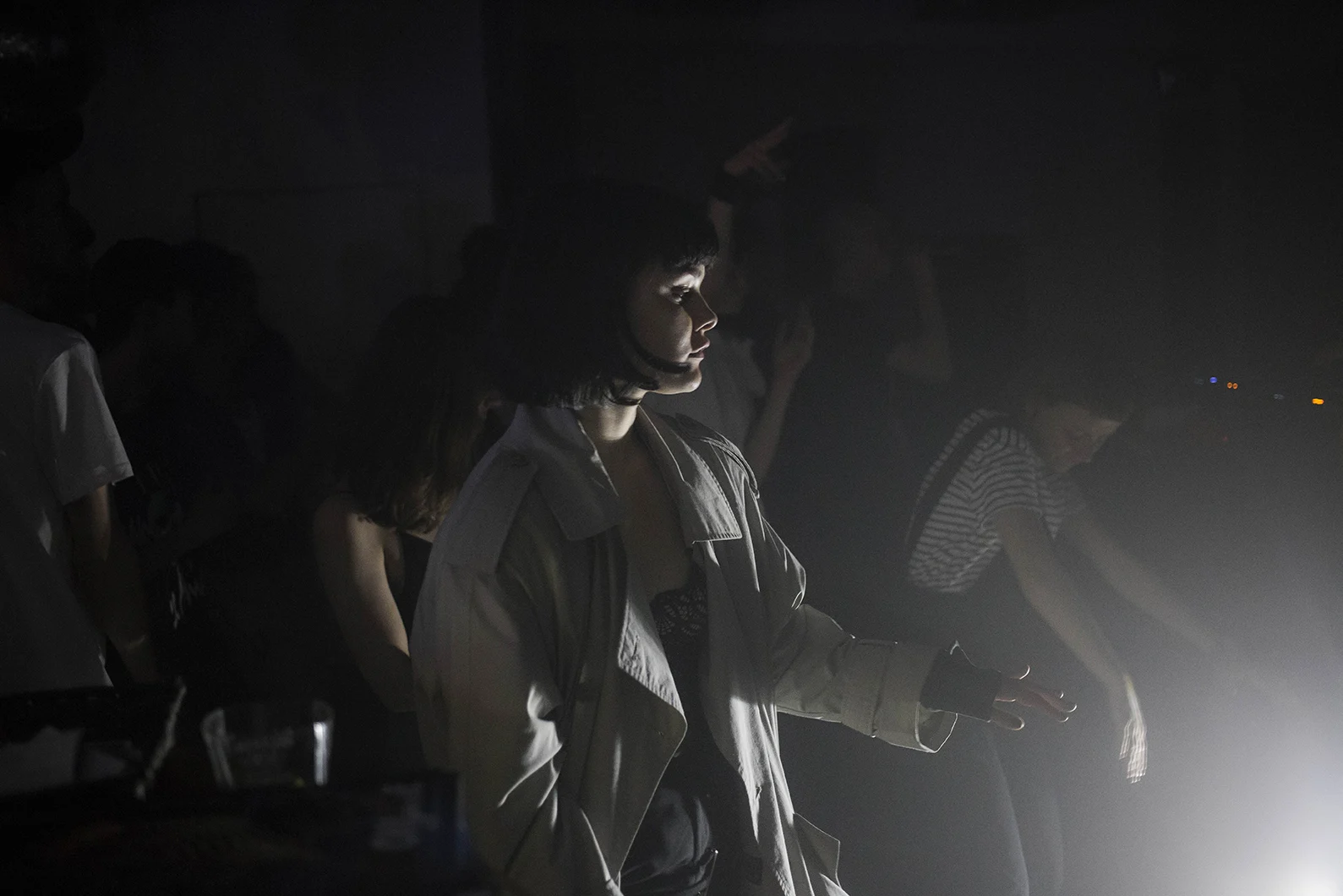
Founding member ISNT comes from a background as an artist and DJ. After a decade that saw her organising events at home as well as DJing her own brand of intense techno in top Berlin clubs like Tresor and about:Blank, this fused into a need to do something about the gender inequalities she constantly noticed in club culture.
“Over many years I was watching the electronic music scene in Warsaw but the line-ups were all the same, mostly all male,” she explains. “I wanted to use the opportunity I had to showcase girl DJs and what they are doing, because they don't have enough attention on the Polish electronic scene.”
The collective took their name from pioneering electronic musician Daphne Oram, the first director of the BBC Radiophonic Workshop. “We wanted our name to refer to the history of women in the history of electronic music. During a residency course while analysing the functions of the oscilloscope, she asked the teacher if you can turn the working process around so that the machine can play sounds read from images,” ISNT tells me over the phone from her new home of Bayonne, France. “Unfortunately she wasn't taken seriously. Later she created that exact machine and its name was Oramics. She represents determination, breaking stereotypes. An open and creative mind.”

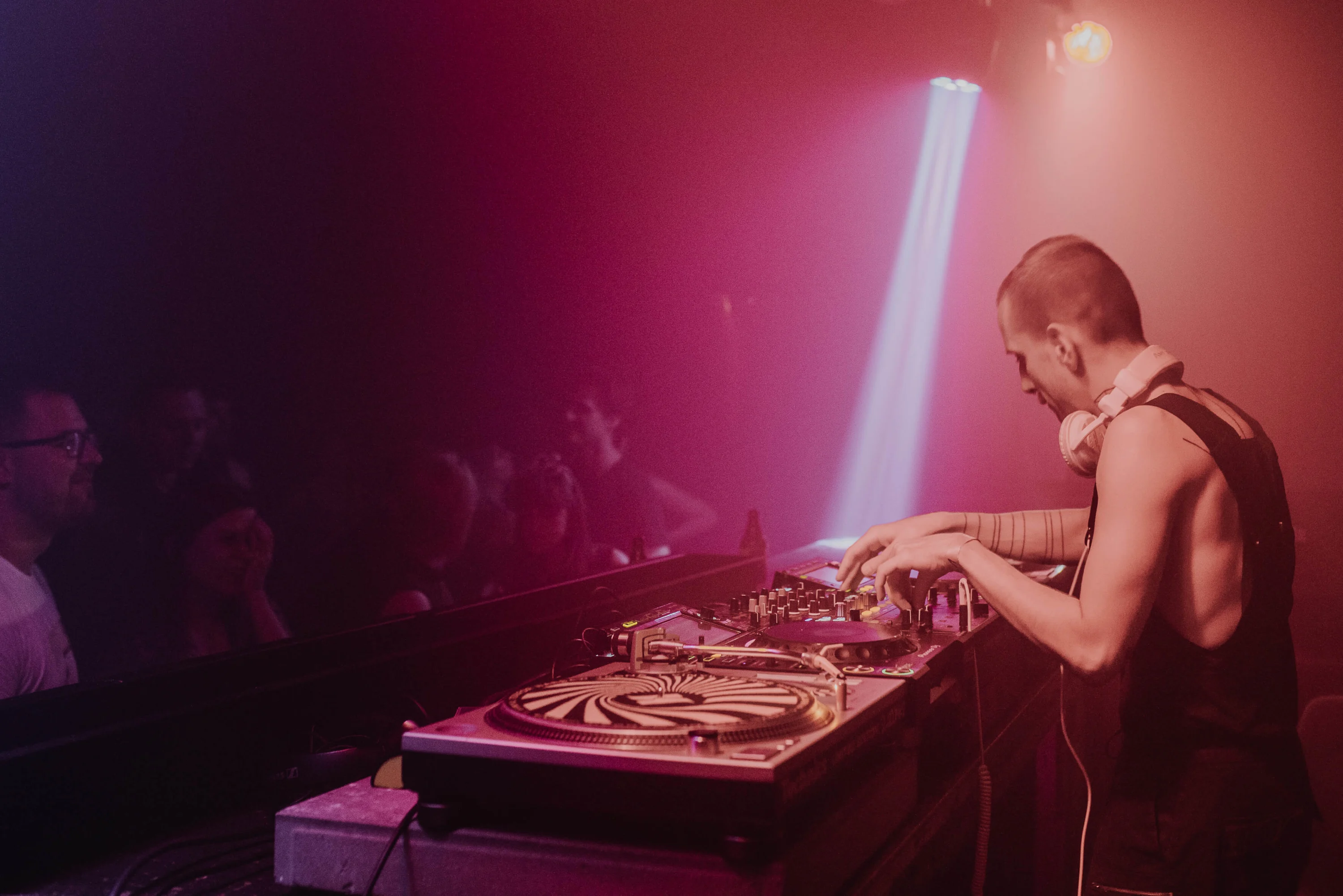
We can just make what we have in our minds happen.
Spread across Poland, France and the Netherlands and consequently often organising remotely and apart, the collective’s club nights, workshops and podcasts are already having an effect on changing the underground electronic music landscape across Poland.
“At some point, some clubs were like; Hey, do you want to organise parties in our club?” Monster tells me over a coffee in Kreuzberg where she is visiting friends for the weekend. She joined the collective a year ago. She told me the story of Projekt LAB in her hometown of Poznan. “Over time, our cooperation with Project LAB turned into them working on having a safer space and having parties for the LGBT community, which was not so common for a lot of clubs in Poland, especially when it comes to underground electronic music.”
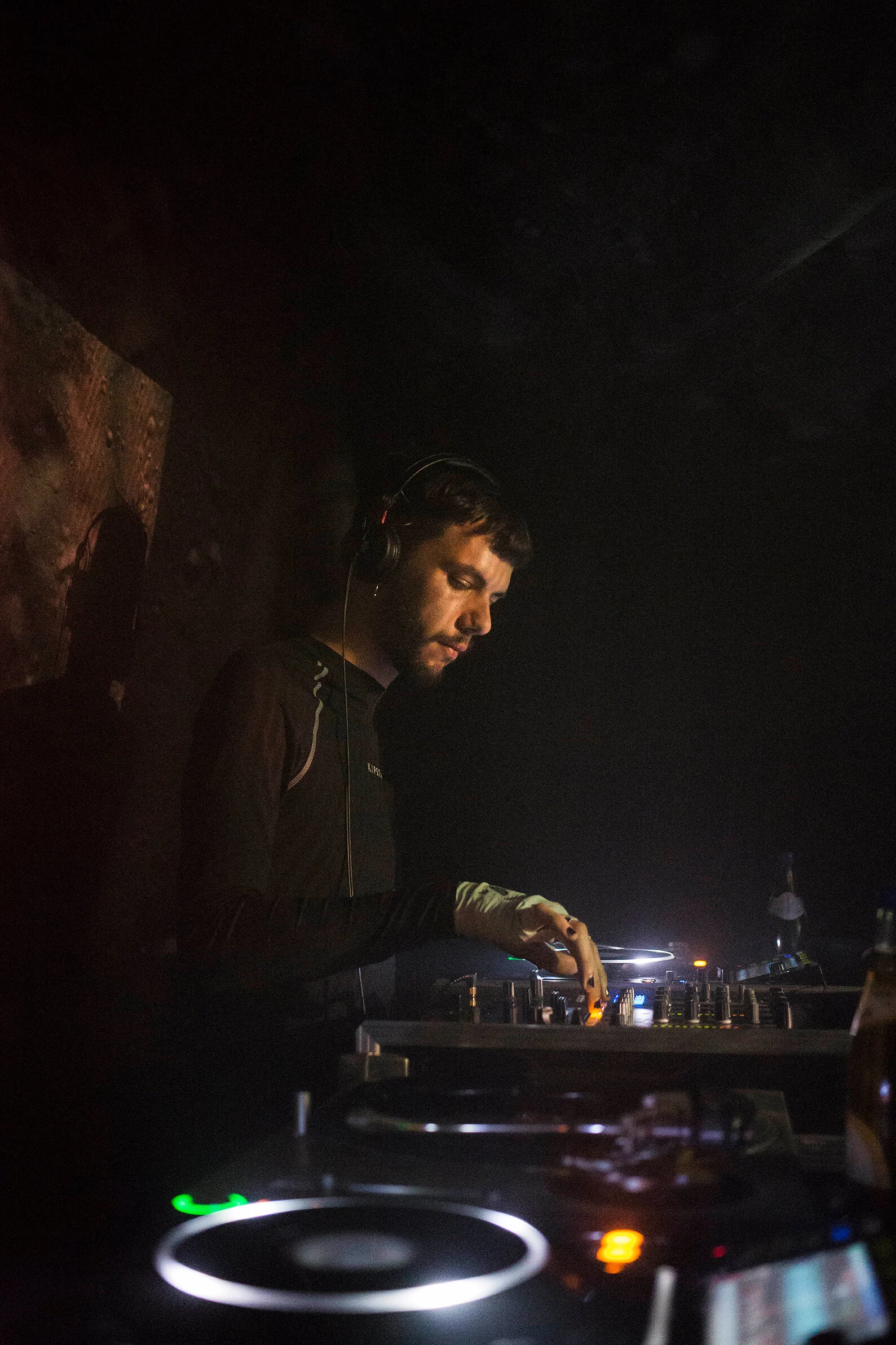
In the aftermath of the Pride attacks, the collective felt something had to be done. And when Drvg Cvltvre, the artist behind experimental techno label New York Haunted and FOQL's long-time collaborator, got in contact, the idea came for a various artists compilation LP to raise money for organisations fighting homophobia in Poland.
The resulting LP, Total Solidarity, is made up of 126 tracks. It is an immense collection of works from a rich mix of international underground electronic artists, collected in little over a week. Some of the tracks were composed especially for the album, others were previously lying dormant on artist’s hard drives. What’s unexpected is how well they all come together into an intense epic journey of often raw, dark and bold cutting edge electronic music. We go from from Air Max ’97’s rhythm contorting Myokymia to the deconstructed hardcore textures of Violet’s Self-Inspection and Varg’s archly titled, Oh so u into dark electronic dance music, sounds siq (plz tell me more).
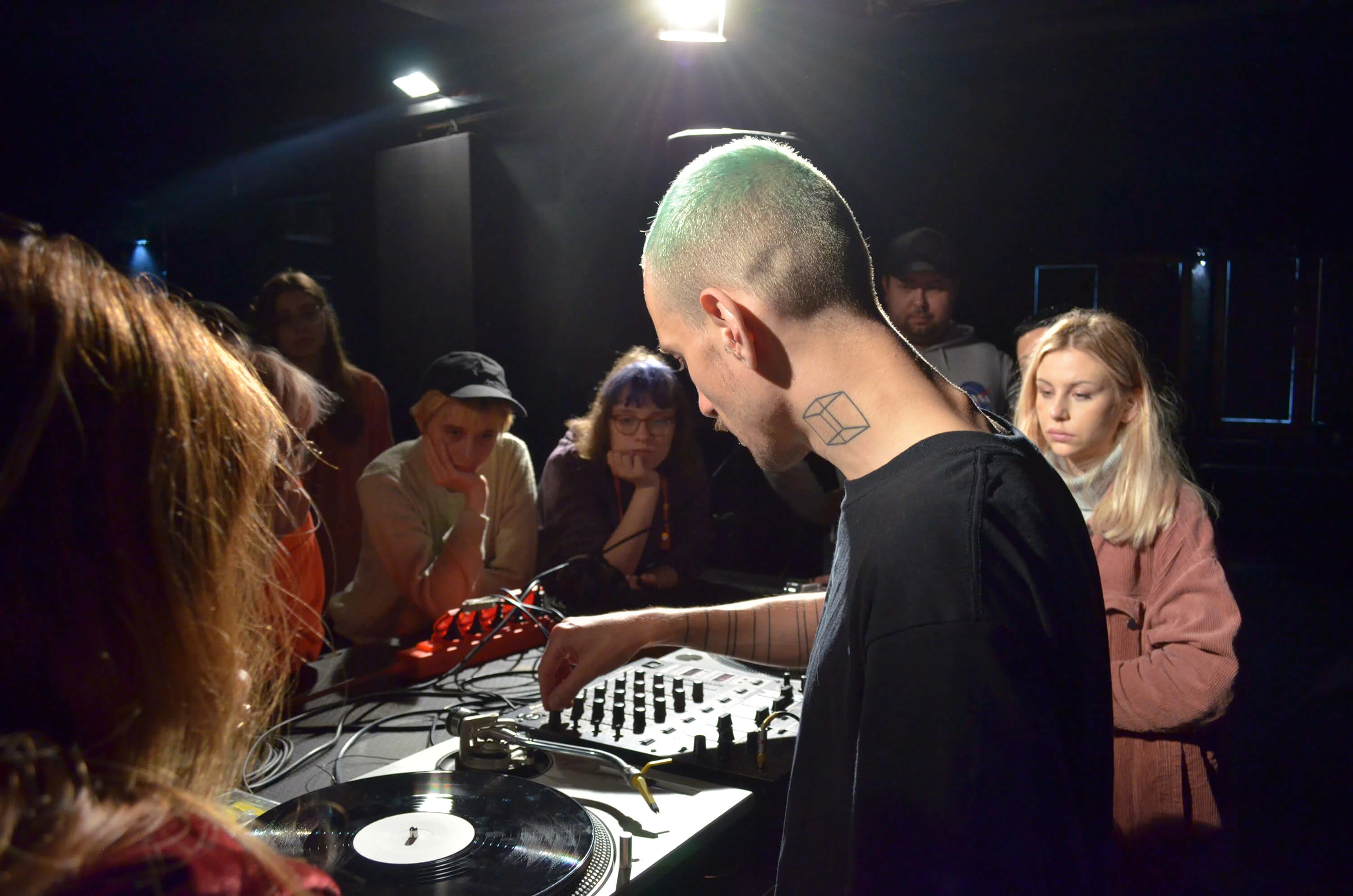
Total Solidarity is Oramics’ manifest in action. But change is ongoing. Currently, they’ve raised around €5500. “We’re in constant contact with Kampania Przeciw Homofobii (Campaign Against Homophobia) and Miłość Nie Wyklucza (Love Doesn’t Exclude): organisations who have agreed to help us redistribute this money throughout smaller Polish cities, especially the ones that struggle with hate directed towards the LGBTQ+ community,” ISNT explains. “We’ve also organised charity club nights and concerts, which managed to raise an additional €2000 with the same purpose in mind.”
“It shows us that we can just make it happen. What we have in our minds.” ISNT says.
The future is uncertain, but Avtomat, for one, is refusing to bow into fear. “Personally I try to be as open and transparent as I can. I want to show that you can be openly queer and embrace the less normative aspects of your personality in what you do without shame or fear,” he says. “Poland needs more visibly queer artists to normalise their position on the scene. Neither me nor Mala Herba (Zosia Hołubowska, a non-binary artist from our collective) have ever kept our real names secret out of fear. As she put it: we refuse to be scared by our own government.”

